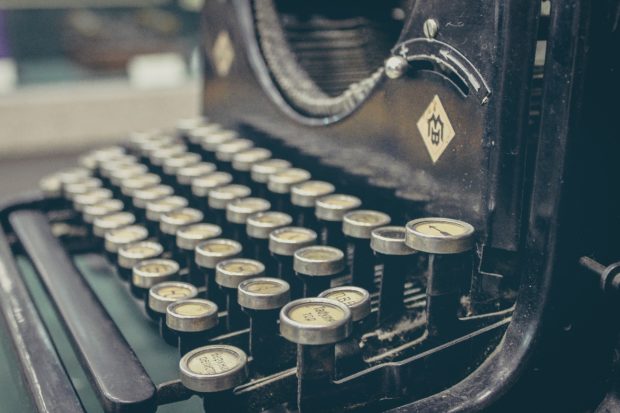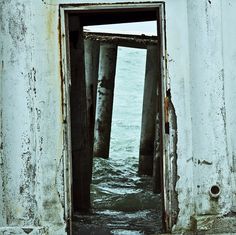You have no items in your cart. Want to get some nice things?
Go shopping
The cottage was at the end of a dirt track, almost hidden by a group of tall trees. Harry pulled up and got out, stretching his limbs after the long drive west, and screwing his face against the misty rain. Barnaby Dunn was waiting for him in the doorway.
“You made it!”
“Hello, Mr Dunn.”
“Oh, for Christ’s sake. Only my accountant calls me that. And, please God, not ‘Barnaby’ either. I’d feel like I was being chastised. Come in out of this dreadful mizzle. I’ve got the fire going.”
Harry reached back inside the car and scooped up the Dictaphone and his scrawled notes. How was he supposed to address his interviewee? Barney? Barn? Dunny? He was going to have to avoid calling him anything the whole afternoon for fear of causing offence. He looked over at the man smiling in the doorway. Harry had only ever seen one picture of him – the head shot that appeared on the back flap of the novels – and he was much shorter than he imagined. Of course, he was older now, too, with a mop of wiry white hair. He was dressed in faded jeans and a thick jumper, like a fisherman or lighthouse keeper. As Dunn led him into the house, Harry saw that he walked in a kind of rolling motion. It reminded Harry of his grandmother, before she got her hip fixed.
They came into a kind of snug at the back of the house. The fire turned out to be a meagre thing, barely alight, and the room felt clammy and cold.
“First things first,” said Dunn, clapping his hands. “Tea? Is that what students drink these days? We always drank tea in my day. Gallons of it.”
“Thanks, yes. Tea’s fine.”
While Dunn busied himself in the kitchen next door, Harry looked round the room. The furniture seemed completely knackered, stuffing coming out of seats, a chair missing a leg. Beside the fireplace was a small set of warped shelves. Harry saw various editions of Dunn’s debut, The Antique Pieces, but as he looked along the spines on the shelf, he was surprised to see that there wasn’t a single copy of the follow-up, Endless Sonatas, let alone any other book.
A poker was resting against the shelves. Harry used it to prod at the fire. The flames leapt briefly before dying.
“Nice to have a fire on a day like today,” said Dunn as he came back into the room.
Harry perched on the edge of a threadbare sofa and took the proffered mug. The tea looked scummy, but he sipped at it to appear polite. At least it would warm him up. Dunn slumped heavily into a battered leather armchair and let out a loud sigh.
“Thanks very much for agreeing to this,” said Harry.
“Nonsense,” said Dunn. “Besides, it’s been a long time since I was asked. Glad of the company, to be honest.”
“Is it OK if I record it?” Harry placed the Dictaphone on the low coffee table that stood between them.
“Straight down to business, eh? Of course I don’t mind. It’s good to be accurate. It’s vital to get things right. Though whether I’ll actually say anything of any interest to you and your readers is another matter entirely. Does anybody your age actually read books anymore?”
“Well, I do.”
“Glad to hear it! And do you write?”
Harry could feel his face getting hot. He thought of all those scrambled paragraphs. “Bits and pieces,” he said.
“I felt sure you’d be a writer. I’m glad.”
Harry wasn’t certain he understood what that meant, but he shrugged it off. He took out the folded piece of paper on which he’d scrawled his questions, then pressed the button on the machine.
“I guess the first thing I wanted to ask you is how you got started?”
Dunn rested his hands on his massive belly. “Well, now – I wasn’t much older than you are. Now look at me – an antique piece myself!” He seemed pleased with his joke, but then narrowed his eyes. “How old are you?”
“Nineteen.”
“My goodness. Yes, I was around that age. Perhaps a little older. This would have been in the early seventies, of course. I mainly wrote poetry at Oxford, dreadful stuff, then when I came down I was part of a group of poets who met every Friday in a pub in Fitzrovia. Ostensibly we were there to read each other’s poems and offer encouragement, but more often than not we just drank and slagged each other off. Great fun.”
He shifted in his chair and leaned forward. Harry could see that the wiry hair was not confined to the top of his head – big bushes of it were also issuing from his nose and ears. Harry found it difficult to take his eyes off them.
“You see,” Dunn went on, “the most important thing is to enjoy it. I had a whale of a time writing The Antique Pieces. There was no pressure then. Nobody was pestering me for it. The world was not holding its breath. It was just me and my typewriter, having fun. It took me several years to finish it.”
“Years?” Harry thought of his own stuff. Was it going to him take that long?
“I suppose part of me didn’t want to let it go.”
“But it was successful, wasn’t it? When it was published?”
Dunn waved a hand. “Oh, but those things have nothing to do with the writing. It was gratifying, don’t get me wrong. It was nice to dress up in a dicky bow and have dinner at the awards shindig. I’m talking about the Whitbread, of course. But don’t confuse that – all that paraphernalia – with what goes on when it’s just you on your backside tapping away.”
Once he got into his stride, Dunn barely paused for breath. He talked about an early mentor, a now-forgotten writer named Gerald Flitcroft, who had given him crucial encouragement in the early days. He spoke of his pride and satisfaction when he first held a copy of The Antique Pieces in his hands. It was, he said, the highlight of his life. And then the whirlwind of readings and signings and interviews.
Harry was more than happy to sit back and listen. Dunn’s work had been a revelation to him. The Antique Pieces was brilliant, the story of a discerning burglar who steals only antiques in order to furnish his perfect home. Harry had never heard of its author before he picked up a second hand copy of the book in a charity shop in Brighton, and when he looked him up online he found that there had only ever been one other novel and Dunn had barely been heard of since. Harry had held out little hope that he would agree to an interview for a student rag. Dunn had been hard to track down – he had no social media presence, but a letter sent to his original publisher had resulted in a handwritten reply saying he’d be “delighted” to meet, as long as Harry didn’t mind coming all the way down to his Devon home.
Harry drank the rest of his tea and hoped the Dictaphone was recording everything. He thought about Dunn’s mentor and wondered if the old man would fulfil that role for him now, like a passing on of knowledge down through the generations. He’d help Harry’s writing, maybe even get him published. Harry couldn’t think of anything he wanted more.
So engrossing was Dunn’s monologue that Harry lost track of the time. He was surprised when he glanced at the window to see that it was getting dark. The only light in the room came from the dying embers of the fire. Dunn was becoming indistinct, a shadowy presence. Harry could feel a migraine coming on. He needed to move things along.
When Dunn next paused for breath, Harry asked, “So what happened with Endless Sonatas?”
“Ha!” shouted Dunn. “I’ll do us another cuppa, shall I?”
“Not for me, thanks.”
“Something stronger, then?”
“I’m driving.”
“Oh, Christ. We used to think nothing of it.”
“Yes, but—”
“Well, look,” Dunn said. “You could stay here. There’s plenty of room. It’s just me rattling around.”
A sudden thought occurred to Harry: was Dunn trying to seduce him? Was that the reason he had agreed so readily to the interview? Harry had read that he had been a bit of a lothario in his younger days, shagging both men and women. He had never married.
“I really have to head back tonight. My girlfriend—”
“What’s her name?”
“Holly.”
“Prickly.”
Before Harry could think of anything to say to that, Dunn got up and went to a cupboard at the far end of the room. One of the doors was half open, and Dunn tried again and again to shut it, without success.
“These antiques are showing their age,” he said.
“Antiques?”
“You sound surprised.”
“I don’t really know anything about antiques.”
Dunn grinned. “Write what you know. That’s what they always say, isn’t it? That one piece of advice they trot out in the books and on the courses.”
“I suppose so,” said Harry.
“That’s the problem, though, at your age. At the age I was. One knows nothing. I had to learn. I had to educate myself to write that first book.”
“In antiques?”
“And the rest.”
Harry frowned. What was Dunn telling him? The Antique Pieces was about a burglar. Surely he wasn’t suggesting he’d stolen all this furniture? But what if he had? Harry leaned forward to check that the Dictaphone was still running. This could be major. This could be an actual scoop. He could sell the story to the nationals. Even his dad might be impressed for once.
But his brain felt foggy. He couldn’t get things straightened out in his head.
Dunn said, “You mentioned Endless Sonatas, so let’s talk about that, shall we?”
“We don’t have to—”
“Of course we do. You want a rounded picture, don’t you? You want the full story, warts and all.”
Yes, thought Harry. He definitely wanted the warts. Now Dunn was pacing around behind at the back of the room and Harry had to snap his head round. The sudden movement made his head spin.
“Do you know what it’s like to be pilloried?” Dunn said. “Of course you don’t. I don’t mean just criticised. I can handle a little bit of honest evaluation. But to be absolutely slated. People didn’t just hate the book. They hated me for writing it.”
“I’m sure that’s not—”
“Dunn is done, one headline said. Crass, of course. Not to mention obvious. But still, it rankled. It hurt. There are only three things wrong with Barnaby Dunn’s new novel: the beginning, the middle and the end. Well, I ask you. Wouldn’t you be upset?”
“Is it true that you gave up writing?”
Dunn stopped pacing and stared down at him. “Who told you that?”
“Nobody. I mean, I read it somewhere.”
“Where?”
“I think it was Wikipedia.”
Dunn frowned.
“It’s a website,” Harry added.
“I know what it is! Christ. I may be out in the sticks here, not to mention decrepit, but I’m not completely out of touch.”
Harry swallowed hard. Despite his lack of height, Dunn look enormous now, standing over him like that. “I’m sorry.”
“Don’t apologise,” said Dunn. “Don’t ever apologise. Nobody gives a shit if you’re sorry.”
Harry’s head was pounding. He seemed to have pissed Dunn off somehow. None of this was going to plan. Harry glanced down at his piece of paper with all his questions. He couldn’t make out his handwriting in this dim light. Everything was blurry.
“I never stopped writing,” Dunn said, coming back round to the coffee table. “In fact, I’ve been working on something new for a while. It’s something of a departure. I think – no, I know, that it’s going to be my best creation.”
“What’s it… What’s it about?”
Harry’s words seemed indistinct to him, and in the silence that followed he wondered if Dunn had heard him, or even if he had said the question out loud. He heard a click, and realised that Dunn had turned off the Dictaphone.
“This is strictly off the record, Harry,” said Dunn. “We wouldn’t want this to get out, would we?”
“No, I … I guess not.”
“Here’s the thing, Harry. It’s going to be a collaboration.”
“Who with?”
“With you, of course.”
Harry tried to focus. When Dunn spoke next, his voice was soft, almost a whisper.
“How are you feeling?”
“I … I don’t know.”
“Good,” said Dunn. “It’s working.”
“Wh …?”
“My special brew.”
Dunn chuckled. The fire was almost extinguished now, the only source of light all but gone. Harry was aware of a dark shape moving towards him.
“You see, Harry, that criticism of Endless Sonatas did hurt. I’m not going to deny it. My ego took a battering, and for a long time I wanted to crawl under a stone and never come out. But then one day I woke up and decided I wasn’t going to let those ignoramuses defeat me. I wasn’t going to end my days as a failure. So I’m fighting back, Harry. I’m going to prove everyone wrong.”
Harry tried to move, but his body wouldn’t obey him. He felt as if he was sinking into the sofa, as if it was swallowing him up.
“It’s a crime novel,” Dunn said. “That seems to be where everybody’s at these days. That’s what’s really popular, wouldn’t you say? But I asked myself – if lots of people are doing it, how can I give myself an edge?”
A log slipped in the fire, sending up a few last feeble sparks.
“I’ve had a lot of time to brood on this, Harry. To work out how to go about it. But I needed to do my research. I want it to be absolutely authentic. Like they say: write what you know.”
Harry started to speak, but it came out as nothing more than a gurgle.
Dunn leaned in and put his ear close to Harry’s mouth. “What’s that, Harry? People know you’re here? Don’t worry about that. I told you – I’ve had a lot of time to prepare. I’ll say you left here happy as Larry – or happy as Harry. Your car will be found a few miles away, in one of these tiny country lanes. No cameras anywhere. Maybe they’ll find your body some time later. You came off the road into a ditch, then started to walk to try and find help. Flagged down the wrong person. I can stage it all. I’ve always been good at setting scenes.”
Harry felt Dunn’s hands close around his throat. He managed to lift an arm and swat it against Dunn, but it was a nothing hit and the pressure on his neck increased.
“I need to know what it’s like, Harry,” Dunn said. “I need to know how it feels. Don’t worry. It won’t take long. Hopefully, if the potion’s done its work, you won’t even feel any pain. That’s my gift to you.”
Harry couldn’t see anything. Everything was fading.
“You should be pleased, Harry,” Dunn was saying, his voice coming from somewhere far away. “You should be grateful… To be a part of this… To play such a crucial role… Relax… I won’t forget this, Harry… No, really – thank you… Relax. It’s almost over… Shhh, shhh, shhh… Just relax…”
*
From the reviews of Sinners’ Town by Barnaby Dunn
“Thirty years on from the unjustly maligned Endless Sonatas, Barnaby Dunn has produced one of the publishing sensations of the year. A stunning comeback”
—Sunday Telegraph
“A fascinating glimpse into the mind of a murderer”
—Guardian
“Dunn’s superbly realised anti-hero narrator, Felix Gattner – part-aesthete, part-madman – is one of the chief joys of this horribly compelling novel”
—crimeonline.com
“A terrific feat of the imagination”
—Sunday Times

About Ian Critchley
Ian Critchley is a freelance editor and journalist. His fiction has been published in several anthologies and journals, including Staple and Neonlit: Time Out Book of New Writing, Volume 2, and his journalism has appeared in the Sunday Times, Times Literary Supplement, Literary Review and Telegraph.
- Web |
- More Posts(1)





One comment